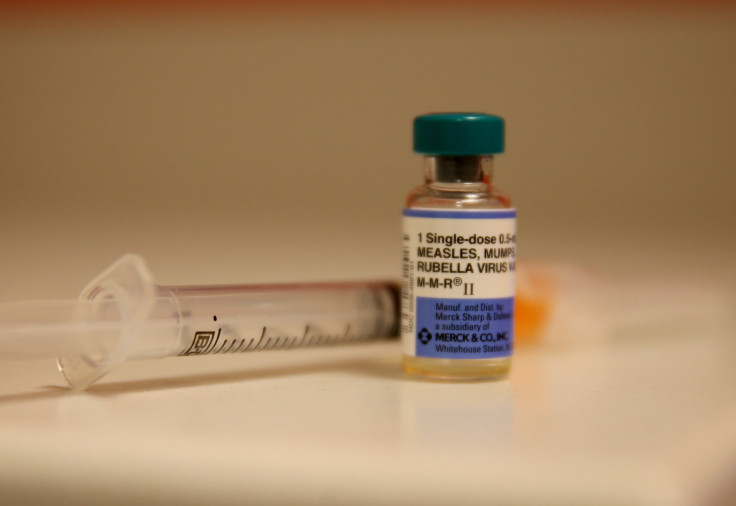Measles Outbreak: Most People In Canada Say Vaccines Do Prevent Disease, Poll Finds

The vast majority of Canadians believe that vaccines are effective, a new poll by the Angus Reid Institute has found. The data comes amid attacks on vaccine opponents due to a measles outbreak that has expanded across the United States and into neighboring countries, including Canada.
Asked, "Are vaccines effective?" 88 percent of respondents said vaccines do work in preventing disease in individuals, while 86 percent said they work in preventing disease in the community. These percentages reflect national averages. By region, belief in the efficacy of vaccines in preventing disease in individuals ranged from 75 to 94 percent.
The survey also found that younger people, aged 18 to 34, were less convinced of vaccines' efficacy. Roughly 82 percent and 83 percent said vaccines protected against disease in individuals and in the community, respectively, whereas 91 and 93 percent of those aged 55 or older said vaccines worked in individuals and communities, respectively.
Despite broad agreement that vaccines were effective, 39 percent of respondents said the science around vaccinations isn't clear, and only 63 percent of respondents said they should be required for children to attend school or day care. Still, the poll found that 74 percent of respondents said those who opposed childhood vaccinations were "irresponsible."
Overall, more of the older and more educated respondents said they believed in vaccines' efficacy and that the science behind them was clear. The poll was conducted from Feb. 9 to 11 and surveyed 1,509 adults across Canada.
The poll also offered somewhat unusual commentary about when or whether to vaccininate. "Love them or hate them, celebrity anti-vaccine advocates ... have succeeded in capturing public attention and creating a so-called 'debate' on the actual efficacy of vaccines in many facets of society," it said.
Canadians' beliefs according to the poll were not very different from recent findings among Americans. A poll conducted by the Pew Research Center released on Monday, which polled just over 1,000 adults in the United States from Feb. 5 to 8, showed that 83 percent of Americans said vaccinations were safe. The Pew Center's question of safety differed from the Angus Reid Institute's question of efficacy, but broadly speaking, both polls suggested that the majority of the population did not harbor the anti-vaccination sentiment that has sparked so much discussion recently.
On Wednesday, Canadian officials confirmed 10 cases of measles in Quebec. They linked these cases to the Disneyland outbreak that the CDC has connected with 103 of the 121 cases tallied in the United States so far. In Toronto, eight cases of measles have been reported. Measles cases have also been reported in six states in Mexico.
© Copyright IBTimes 2024. All rights reserved.






















